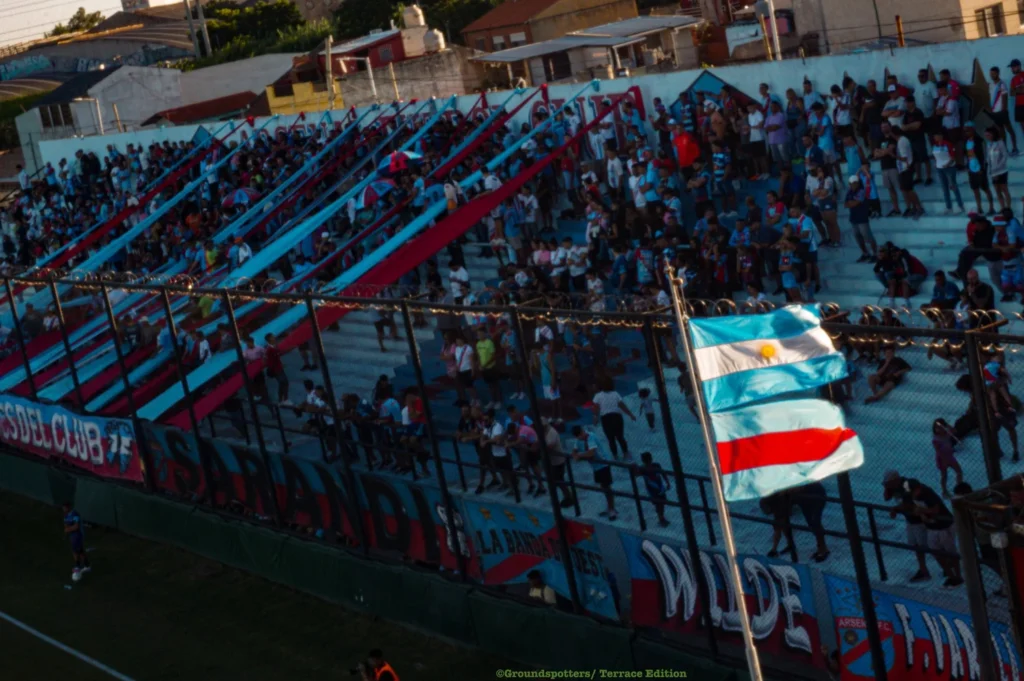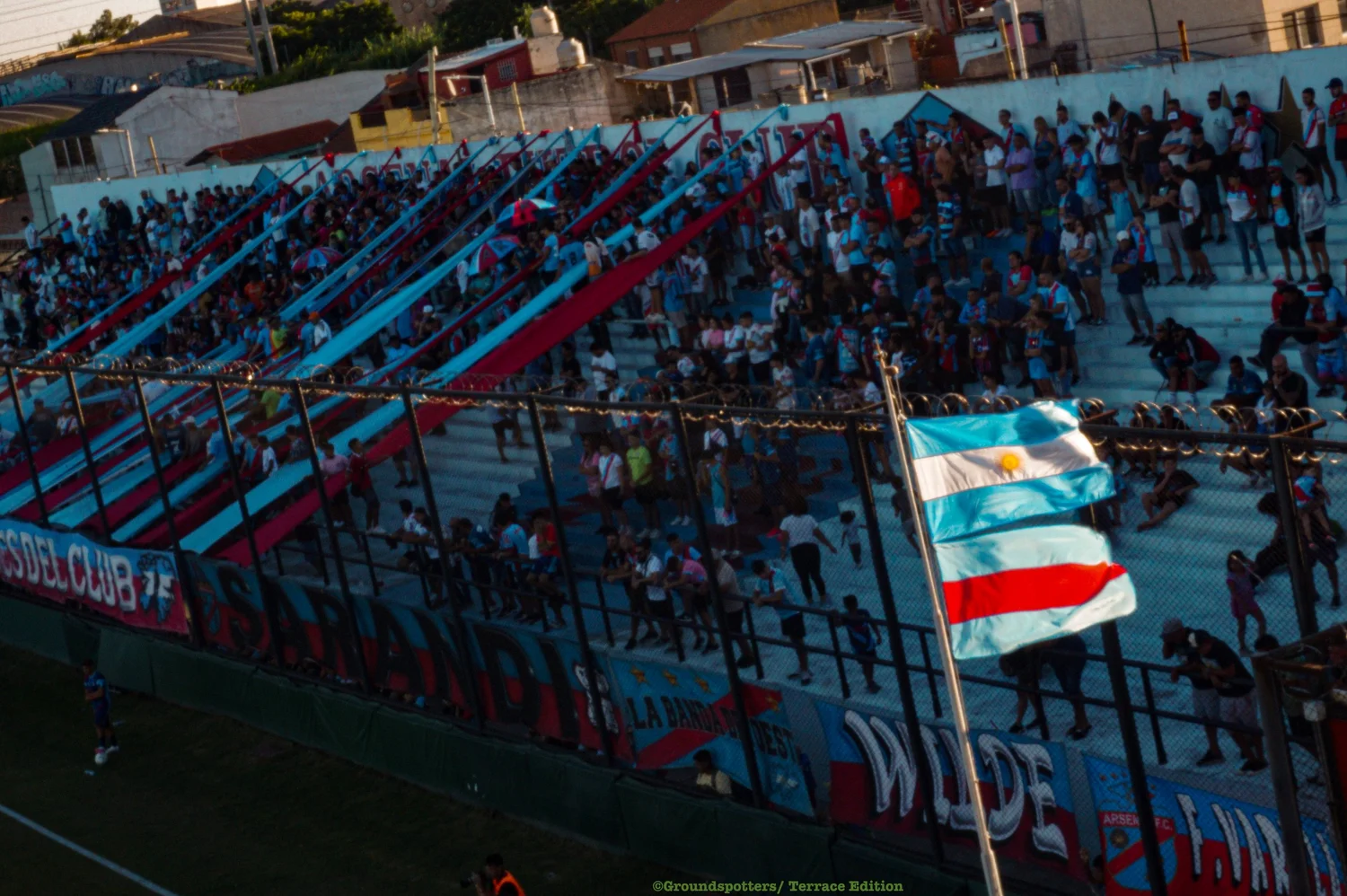
Arsenal Fútbol Club: A Deep Dive into the Argentine Football Institution
Arsenal Fútbol Club, often referred to simply as Arsenal de Sarandí, is an Argentine sports club located in Sarandí, Avellaneda Partido, Greater Buenos Aires. Founded in 1957, the club’s primary focus is football, and it competes in the Argentine Primera División, the top tier of Argentine football. This article provides a comprehensive overview of Arsenal Fútbol Club Argentina, exploring its history, achievements, players, stadium, and its role within the broader context of Argentine football.
History and Foundation
Arsenal Fútbol Club Argentina was founded on January 11, 1957, through the initiative of Julio Humberto Grondona and his brother, Héctor. Julio Grondona later became a prominent figure in Argentine football, serving as the president of the Argentine Football Association (AFA) for over three decades. The club’s name, Arsenal, was chosen in homage to the English club Arsenal F.C., though there is no formal connection between the two clubs. The colors of the club, light blue and red, were selected as a combination of the colors of Avellaneda’s two major clubs, Racing Club (light blue) and Independiente (red), symbolizing unity within the community.
Early Years and Ascendancy
In its early years, Arsenal Fútbol Club Argentina navigated through the lower divisions of Argentine football. The club’s initial focus was on building a solid foundation and developing local talent. Gradual progress saw Arsenal steadily climbing the ranks, earning promotions and establishing themselves as a competitive force. This period was marked by consistent effort and a commitment to sustainable growth, laying the groundwork for future success.
Promotion to the Primera División
A significant milestone in the history of Arsenal Fútbol Club Argentina was its promotion to the Argentine Primera División in 2002. This achievement marked the culmination of years of hard work and dedication, signaling the club’s arrival on the national stage. The promotion brought increased visibility and opportunities, allowing Arsenal to compete against the country’s top teams and further solidify its position in Argentine football.
The Golden Era: Titles and Achievements
The period following their promotion to the Primera División is often considered the golden era for Arsenal Fútbol Club Argentina. Under the guidance of experienced coaches and with the contribution of talented players, the club achieved unprecedented success. This era saw Arsenal win several major titles, including:
- Copa Sudamericana (2007): This was Arsenal’s first major international title, a remarkable achievement that showcased the club’s ability to compete at the highest level in South American football.
- Argentine Primera División (Clausura 2012): Winning the domestic league title marked a significant milestone in the club’s history, solidifying its status as a major force in Argentine football.
- Supercopa Argentina (2012): This title further cemented Arsenal’s success and dominance during this period.
- Copa Argentina (2013): Adding another domestic cup to their trophy cabinet, Arsenal demonstrated their consistency and ability to compete across different competitions.
These titles reflect the hard work, dedication, and strategic planning that characterized Arsenal Fútbol Club Argentina’s success during this period. The club’s achievements brought pride to its fans and recognition to the city of Sarandí.
Estadio Julio Humberto Grondona
Arsenal Fútbol Club Argentina plays its home matches at the Estadio Julio Humberto Grondona. Named after the club’s co-founder and former AFA president, the stadium is a significant symbol of the club’s history and identity. Located in Sarandí, the stadium has a capacity of approximately 18,300 spectators. Over the years, the Estadio Julio Humberto Grondona has undergone several renovations and improvements to enhance the fan experience and meet the standards of professional football. The stadium serves as a focal point for the local community, hosting not only football matches but also various social and cultural events.
Key Players and Managers
Throughout its history, Arsenal Fútbol Club Argentina has been home to numerous talented players and experienced managers. These individuals have played crucial roles in the club’s success, contributing their skills, leadership, and tactical expertise. Notable players who have represented Arsenal include:
- José Luis Calderón: A prolific striker who played a key role in Arsenal’s attacking line.
- Carlos Carbonero: A dynamic midfielder known for his energy and playmaking abilities.
- Lisandro López: (Not the one who played for Lyon or Inter Milan) An experienced defender who provided leadership and stability to the team’s backline.
Notable managers who have led Arsenal Fútbol Club Argentina include Gustavo Alfaro, known for his tactical acumen and ability to motivate his players. These individuals have left a lasting impact on the club, shaping its identity and contributing to its achievements.
Rivalries and Community Impact
While Arsenal Fútbol Club Argentina doesn’t have a traditional, intense rivalry like some of the other major clubs in Argentina, it maintains a competitive relationship with other teams in the Avellaneda area. The club’s presence in Sarandí has a significant impact on the local community, providing a source of pride and identity for its residents. Arsenal Fútbol Club Argentina actively engages in community outreach programs, supporting local initiatives and promoting youth development through football. The club’s commitment to social responsibility reflects its understanding of the role it plays in the broader community.
Current Status and Future Prospects
As of the current season, Arsenal Fútbol Club Argentina continues to compete in the Argentine Primera División. The club faces the ongoing challenges of maintaining its competitiveness in a league that is known for its intensity and competitiveness. Arsenal’s future prospects depend on its ability to attract and develop talent, implement effective strategies, and maintain a sustainable financial model. The club’s management is focused on building a strong foundation for long-term success, both on and off the field.
The Broader Context of Argentine Football
Arsenal Fútbol Club Argentina exists within the vibrant and passionate landscape of Argentine football. Argentine football is known for its rich history, talented players, and intense rivalries. The sport plays a central role in the country’s culture, and clubs like Arsenal contribute to the overall appeal and competitiveness of the league. Argentine football has produced some of the world’s greatest players, including Diego Maradona and Lionel Messi, and continues to be a breeding ground for emerging talent.
Conclusion
Arsenal Fútbol Club Argentina is a significant institution in Argentine football, with a rich history, dedicated fan base, and a track record of success. From its humble beginnings to its triumphs in domestic and international competitions, the club has demonstrated resilience, determination, and a commitment to excellence. As Arsenal Fútbol Club Argentina continues to evolve and adapt to the challenges of modern football, it remains a source of pride for the community of Sarandí and a testament to the enduring passion for football in Argentina. The club’s story is a compelling narrative of ambition, perseverance, and the unifying power of sport. [See also: Argentine Primera División Season Preview] [See also: History of Football in South America]
